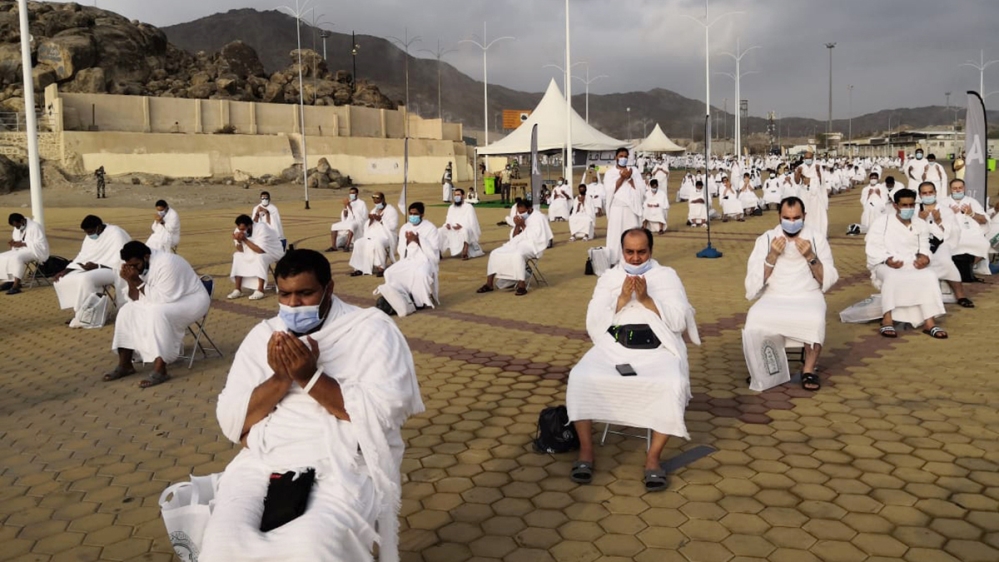
In the years before the coronavirus, some three million white-clad pilgrims from across the world flocked to Islam's holiest sites to attend Hajj under Saudi Arabia's blistering sun.
With the pandemic making large gatherings impossible, only a few thousand pilgrims - Saudis and foreign residents in the kingdom - are allowed to gather this year on Mount Mercy on the plains of Arafat for the most important ritual. They share a common plea.
"Everyone will be praying for this pandemic to end, and for all the people of the world to see better months to come after all the suffering caused by coronavirus," said Ammar Khaled, a 29-year-old Indian pilgrim who is an IT professional in Jeddah.
Over the years, the kingdom has spent billions of dollars on making one of the world's biggest religious gatherings more secure.
This year, it faces the challenge of keeping Hajj, a once-in-a-lifetime duty for every able-bodied Muslim who can afford it and a major source of income for the government, safe from COVID-19.
For the first time in modern history, it has dramatically reduced the number of pilgrims to ensure social distancing measures are adhered to.
The Hajj minister said in June the number of pilgrims would be limited to about 1,000, but no official number has been given for those performing the rituals this week. Some local media cited a figure of some 10,000.
Saudi healthcare and security professionals, on the front lines of the battle against the disease, make up about 30 percent of the total, with the remainder coming from 160 nationalities residing in the kingdom.
Mask-wearing pilgrims circled the Kaaba - a stone structure that is the most sacred in Islam and the direction which Muslims face to pray - in small groups of 50 people, each keeping a safe distance apart and accompanied by a health professional monitoring their movements.
Unlike past years when they lunged towards the Kaaba, pilgrims are not allowed to touch the plain stone cube building covered in black cloth and wrapped in Arabic writing on golden silk.
Workers sanitised the structure, rubbing Oud perfume, the popular Arab sweet and woody scent, on its walls and carrying incense as they moved around the premises of the Grand Mosque.
On site, 3,500 workers spread across the Grand Mosque in Mecca to sanitise it using 54,000 litres (11,888 gallons) of disinfectant and 1,050 litres (277 gallons) of air fresheners daily.
The floors of the mosque were scrubbed 10 times a day, up from three times in the past.
World - Latest - Google News
July 31, 2020 at 08:53AM
https://ift.tt/2CYkR4u
In Pictures: Hajj in the shadow of coronavirus - Aljazeera.com
World - Latest - Google News
https://ift.tt/2SeTG7d
https://ift.tt/35oCZy1
Bagikan Berita Ini














0 Response to "In Pictures: Hajj in the shadow of coronavirus - Aljazeera.com"
Post a Comment